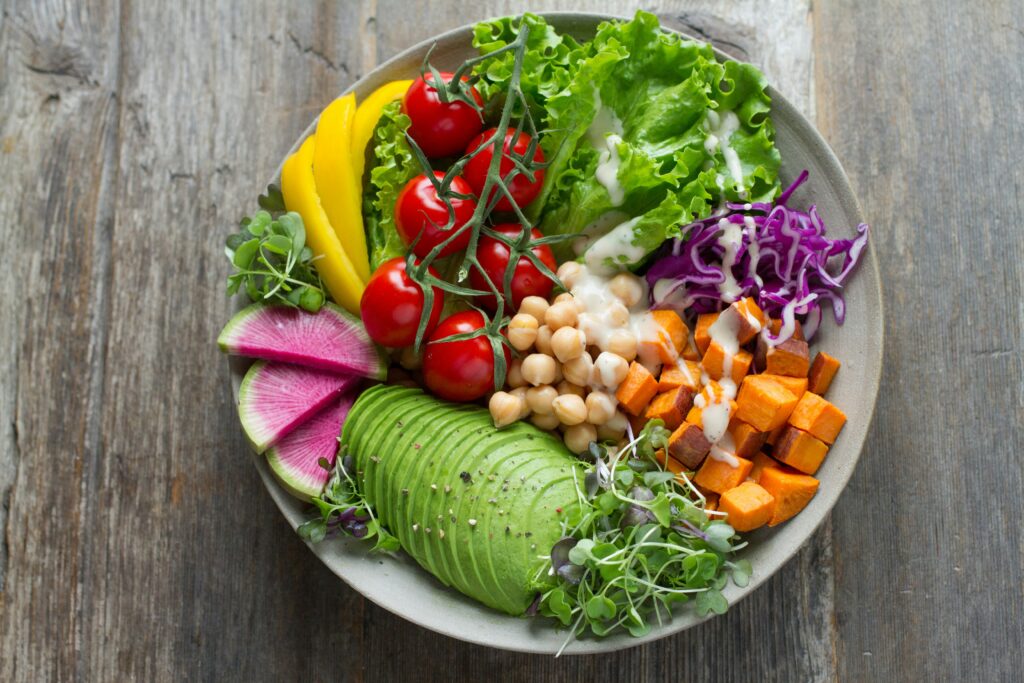Foods That Fight Cancer

There are many types of cancer, and most of us are well aware of many of them. Depending on the type of cancer, lifestyle can often be an important factor in whether we have a high or low risk in developing this disease. And the foods we consume are a crucial element of our lifestyles.
The rise of cancer cases worldwide has spurred a growing interest in the role of nutrition in cancer prevention. So what are the “cancer-fighting” foods?
What Are Phytochemicals?
Before we get to the foods, we first must acknowledge phytochemicals, also known as phytonutrients. These are naturally occurring compounds found in plants. They give plant foods, especially fruits and vegetables, their vibrant colors, distinctive aromas, and unique flavors. Phytochemicals also serve as a plant’s defense system, protecting it from environmental threats like pests and UV radiation.
Scientific research has shed light on the healthful properties of phytochemicals, particularly in preventing chronic diseases like cancer. With over 4,000 phytochemicals identified and studied to date, it’s clear that these compounds offer a multitude of benefits.
Plant-Based Diets
A plant-based diet rich in fruits, vegetables, whole grains, legumes, nuts, and seeds forms the cornerstone of cancer prevention. Remember to think colorful. By incorporating a colorful palette of plant foods into your diet, you can harness the full spectrum of phytochemicals and greatly reduce your risk for many different cancers.
Foods That Reduce Cancer Risk
Leafy Greens
Leafy greens like spinach, kale, arugula, Swiss chard, and collard greens are packed with carotenoids, including beta-carotene, lutein, and zeaxanthin. These compounds are powerful antioxidants, and they can help neutralize free radicals and reduce inflammation in the body. So be sure to eat your greens! Your mother (or grandmother) was right—they’re good for you!
Whole Grains
If you think carbs are the devil, you might want to think again. Whole grains like oats, barley, quinoa, and brown rice are rich in fiber, vitamins, minerals, and phytochemicals. The fiber in whole grains supports digestive health and helps maintain a healthy weight, reducing the risk of colorectal cancer. Also, the antioxidants found in whole grains can protect your cells from oxidative damage, which also can contribute to cancer development.
Soy Foods
Soy-based foods like tofu, tempeh, and edamame contain phytoestrogens called isoflavones, which have been associated with lower rates of breast cancer and improved overall survival in breast cancer survivors. These compounds can help regulate hormone levels and also inhibit the growth of cancer cells.
Walnuts
Walnuts are a rich source of ellagitannins, melatonin, and gamma-tocopherol, which are simply bioactive compounds with antioxidant and anti-inflammatory properties. These nutrients help reduce oxidative stress, inflammation, and gene expression associated with cancer development. So get some walnuts into your diet!
Pulses
Pulses include beans, lentils, and chickpeas, among other things. These foods are high in fiber, resistant starch, and phytochemicals. (Resistant starch doesn’t digest in the small intestine; it ferments in the large intestine and feeds the good bacteria in there.)
With digestive health improved and beneficial gut bacteria promoted, pulses can play an important role in cancer prevention. Additionally, the phytochemicals found in pulses may help reduce inflammation and inhibit the growth of cancer cells.
Citrus Fruits
Everyone knows that citrus fruits like lemons, oranges, grapefruits, and limes are rich in vitamin C. They also contain flavonoids and other antioxidants that can help protect cells from oxidative damage. These nutrients support the immune system and help reduce inflammation, which can lower the risk of cancer and other chronic diseases. Plus, fruit prevents scurvy!
Berries
Blueberries, raspberries, strawberries, blackberries, and more are packed with phytochemicals, including anthocyanins, flavonoids, and polyphenols. Their antioxidant properties can help reduce inflammation and inhibit the growth of cancer cells. Phytochemicals can also protect against DNA damage.
Cruciferous Vegetables
Cruciferous vegetables are foods like broccoli, cauliflower, Brussels sprouts, and cabbage—more foods that your mother probably have to persuade you to eat. They contain glucosinolates, which are sulfur-containing compounds that have been shown to have anti-cancer effects. These compounds may help detoxify carcinogens, inhibit the cancer cell growth, and reduce inflammation. Including cruciferous vegetables in your diet can not only make your mother happy but also help support your overall health and reduce your risk of cancer.
Don’t Overlook the Plants
As nutritional research continues to better understand the relationship between the foods we eat and cancer prevention, one thing remains clear: what we eat really does matter. While plants sometimes get placed to the side on our dinner plates, they probably deserve a more center-stage presence.
By embracing a plant-based diet rich in phytochemicals, we can reduce our risk of cancer and enjoy a healthier lifestyle. Remember that it isn’t just about eating individual foods here and there but about the collective power of a diverse and nourishing diet. Having a piece of broccoli every now and then is good but not enough. Harness the power of plants to fuel optimal health.
